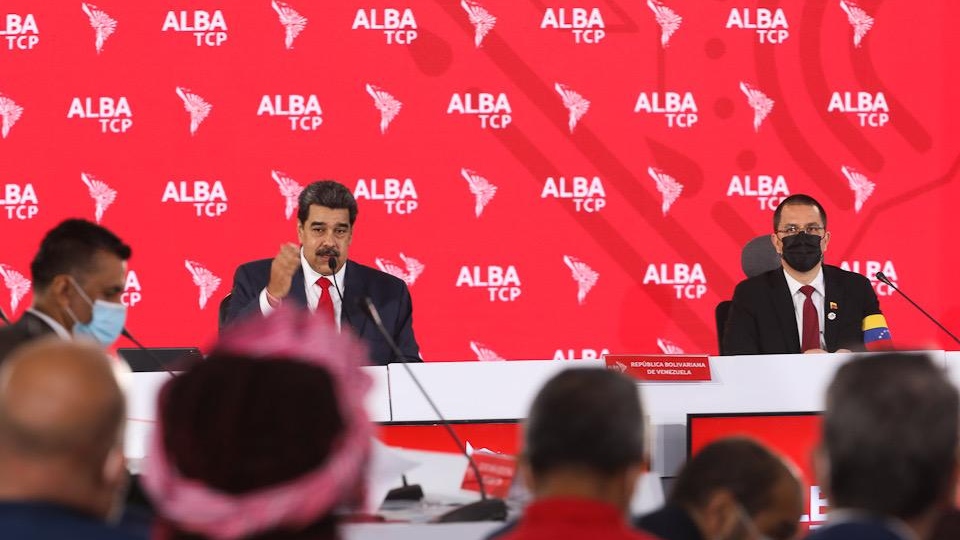On Thursday, June 24, the 19th Summit of Heads of State and Government of the Bolivarian Alliance for the Peoples of Our America-Peoples’ Trade Treaty (ALBA-TCP) takes place in Caracas as part of the commemoration of the 200 years of the Battle of Carabobo.
The Summit aims to discuss the regional situation and the challenges posed by the COVID-19 pandemic and faced by the peoples of the world.
Since its creation, ALBA-TCP has condemned the meddling attacks that try to overthrow the region’s progressive governments through destabilization and the violation of human rights by using communicational strategies.
ALBA-TCP fights against poverty and social exclusion, and for the protection of the environment and human rights. Its representatives have reaffirmed their determination to establish alternatives enabling the Latin American and Caribbean integration in the fight against imperialism.
Creation of ALBA-TCP
In 2001, Commander Hugo Chávez made the ALBA proposal at the 3rd Summit of Heads of State and Government of the Association of Caribbean States.
On December 14, 2004, Cuba and Venezuela endorsed an agreement to consolidate the project of cooperation and political, social, economic alternatives aimed at fighting poverty and social exclusion.
On April 29, 2006, Bolivia joins ALBA with the proposal of the Peoples’ Trade Treaty (TCP), an instrument of solidarity-based, complementary exchange among countries to benefit the people and to reject Free Trade Treaties aiming to increase the power of transnational corporations.
This Alliance emerged as an alternative to the Free Trade Agreement of the Americas (FTAA) promoted by the United States, and changed its name in 2009 at an Extraordinary Summit held in Venezuela.
In this context, ALBA became ALBA-TCP pursuant to a request made by then Bolivian President Evo Morales to include the Peoples’ Trade Treaty.
Cuba and Venezuela are its founding members (2004). Later, they were joined by Bolivia (2006), Nicaragua (2007), the Commonwealth of Dominica (2008), Honduras (2008, until de facto president Roberto Micheletti decided to withdraw from it in 2009), Antigua and Barbuda (2009), Ecuador (2009 – The Government of Lenín Moreno requested its withdrawal in 2018), Saint Vincent and the Grenadines (2009), Saint Kitts and Nevis and Grenada (2014).
Region’s integration
ALBA-TCP aims to expand the Latin American vision in order to recognize integration as a fundamental drive for the peoples’ independence, highlighting its humanist nature under the premise of cooperation among less developed nations, and to promote mechanisms and programs for their development.
Since its creation, ALBA-TCP’s fundamental goal has been to set a new paradigm enabling economic, commercial, productive and social development on the basis of the Latin American and Caribbean integration, negotiation and cooperation.
The Alliance identifies projects through consultation and analysis of strategies for prioritized sectors in order to consolidate proposals and projects to benefit the peoples of the region.
This year, on the commemoration of the 200 years of the Battle of Carabobo, ALBA-TCP seeks to consolidate fraternal relations with the Latin America and Caribbean people in order to reject the U.S. meddling actions and destabilizations attempts.
Likewise, ALBA-TCP has reaffirmed its will to work for the unity of the people and face global challenges and threats of those allied with regional oligarchies.
ALBA-TCP focuses on solidarity, complementarity, justice and cooperation and seeks to consolidate a political, economic, social alliance in the defense of the independence, self-determination and identity of its member countries.



